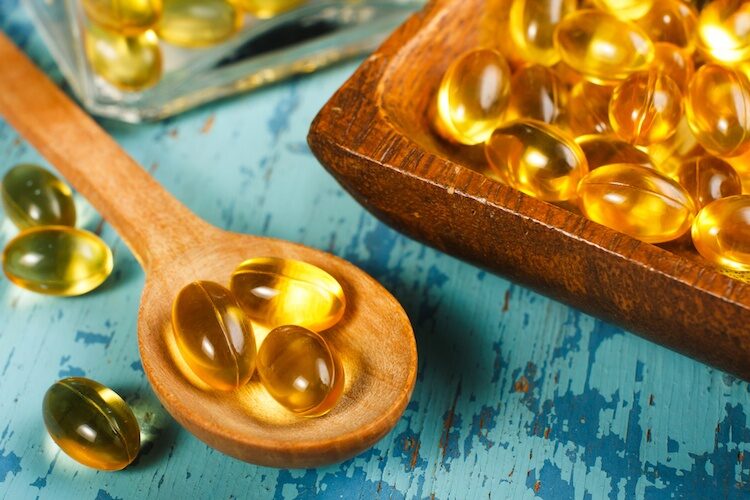The studyinvolved 2,157 men and women aged 70 or older with no significant pre-existing conditions. They were randomized into eight groups and received none, one, two, or all three of: 1 g/day omega-3 fatty acids, 2,000 IU/day vitamin D, and a home-exercise program. Control groups were given placebos and performed control exercises focused on joint flexibility.
Once a year for three years, the seven European trial centers conducted comprehensive full-day visits to observe participants’ health, while also carrying out extensive surveys over the phone every three months. The researchers examined everything from walking speed to memory function, and recorded events including new diseases, falls, and visits to the doctor.
Omega-3s reduced the risk of infections by 11% in total—in particular for urinary tract infections (62%) and upper respiratory infections (10%)—and vitamin D lowered systolic blood pressure in men by 2.5 mmHg and the risk of infections in 70-74-year-olds by 16%.
Related: New Study “Confidently” Connects Flavanols to BP Robuvit May Improve Vigor, Study Suggests CRN-I Reports Focus on Healthy Aging, Role of Microbiome in Health & More
Bischoff-Ferrari summed up the results in a press release: "Our findings suggest that supplementation of vitamin D and omega-3s in adults aged 70 or older who lead an active lifestyle and have no pre-existing conditions does not provide any benefits when it comes to bone health, memory and muscle function. However, we believe there is an effect on infections, such as Covid-19. Given the high safety and low costs of these supplements as well as the high mortality associated with infections in older adults, these findings are very relevant for the health of the general population.” He also suggested that the gender-specific effects of vitamin D on systolic blood pressure warrant additional research.The lack of findings with regards to bone health, memory, and muscle function, the press release notes, doesn’t mean that vitamin D and omega-3s have no effect. The researchers attributed the absence of findings to the good health of the study’s participants, most of whom took regular exercise and half of whom had no pre-existing conditions. Half of the participants were also vitamin D sufficient. "The results therefore do not contradict the Federal Office of Public Health's current recommendation on vitamin D supplementation and fall prevention for older people, nor the proven preventive effects of exercise programs," said Bischoff-Ferrari.
Further results can be expected from the study with regards to cancer prevention, cholesterol levels, cardiovascular diseases, falls, frailty, and health costs. Going forward, the database and biobank set up for the study is also expected to provide more information regarding health risks for individuals. Bischoff-Ferrari concluded: "Ultimately, the goal of DO-HEALTH is to enable more people to age in a healthy and active way.”











